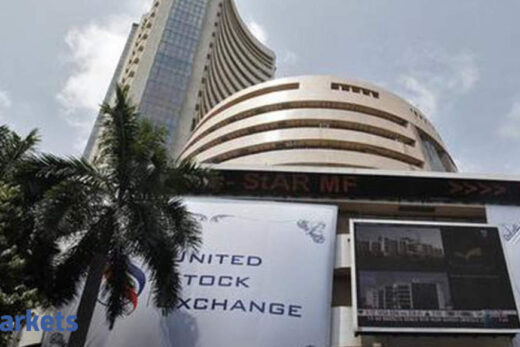Why are FIIs selling India all of a sudden? In the last one month alone we have seen almost Rs 10,000 crore worth of equities getting sold.
It has been the second best performing major equity market in the world after Russia and people are simply feeling it has gone up too much and it is expensive. I noticed a couple of the investment banks downgraded the rating in order to upgrade their rating on China. So there is a shifting perception that China has bottomed now and there is value in China and that I think would explain the selling.
The one commentary or factor which remains key and constant across many sectoral categories as we are in the thick of the second quarter earnings is that inflation has marred the margin performance for most of the companies. How are you looking at inflation? Would the central bank be in a hurry to move from being a growth propeller to an inflation warrior?
There are lots of moving parts to that conversation because one has got the Covid rebound which is clearly causing a lot of supply chain bottlenecks in the sense that there has been a big economic rebound in many parts of the world but other parts of world are still suffering from Covid or are very worried about Covid, particularly China. They are paranoid about Covid because their vaccine efficacy is low. So if the Delta ever really got into China, given the size of the cities and the population density, they would be in trouble. So they are keeping their borders sealed and commensurately their port activity is much lower than it is usually.
There is wage price pressure in many countries because people have dropped out of the labour force. Covid has been some sort of epiphany for a lot of people that maybe I should do something else with my life. I didn’t really like my job and they can see that wages are definitely rising. So, they think if they wait, they will get a better job. Indeed it is true. The wage increments for people who are switching jobs are at their highest possibly in the history of the data series in America that goes back to the 1980s. I could go on and on. There are so many things. There’s ESG which is putting pressure on the supply of oil and coal globally but the Baltic Index has rolled over sharply, as has the price of coal in China and the price of natural gas in the UK.
I think that either prices get to levels that are simply too expensive and people buy less or there is a supply side response which is possible in virtually anything. The Chinese can buy a lot more coal from Africa and Australia if they want to, for example. So it is a very complicated conversation. Even if inflation proves to be longer lasting than the central banks anticipate, we are still better off in equities than bonds. The equities will be able to withstand it much better.
While there is merit in perhaps comparing India and China – one at the top of the heap, other at the bottom of the barrel. Given that there are fundamental changes in the economy, in the way the Chinese government is now conducting the country’s economy, do you think the shift from China to India will be a permanent one?
I do. We are not in the camp that China is a buy. I know as I said earlier that some investment banks are making that case and we would change our mind if we saw a big stimulus programme coming out of China, but there is no sign of that either from the government or the central bank. Life is not all about economic growth and they want to make their environment greener, they want to control their internet so that malicious stuff does not permeate through it and cause a lot of problems with teenagers.
India on the other hand, will get to this stage where those sorts of things are big issues but for now, the government is very supportive of the new economy and that is a major driver for India over the next five years, particularly on the job creation side, as these startups and unicorns continue to grow. There will be demand for jobs from electric vehicles to e-commerce and everything in between. India is about to enjoy that same wonderful golden period of new economy growth that China had for the last 10 years. Unfortunately for India, most of it will not be something we can take advantage of in the stock market. It will remain unlisted. But nevertheless, the indirect effects on the economy will be just as beneficial.
Given that all markets are at an all time high and inflation fear is real, what should one do? Equities as an asset class is expensive and over extended; the risk in bonds is that interest rates will go higher; gold is not making money; in Bitcoins, one does not know what is next. So what should one do?
First of all, we do not like bonds. I can say with some conviction that with the exception of little pockets here and there, that asset class basically would not be too attractive for us. In equities, we might be in a blow-off phase and we do not know how long that could last, it could last for another month, it could last for another year, it could last for another two years.
Bull markets are very powerful, they can be long lasting. I tend to err on the side of optimism when it comes to the Indian equity market because I think there is a confluence of positive events with banks having provision for NPAs, the bad bank being set up by the government and banks being in a position to lend again and then property prices no longer falling. That was a huge psychological weight on people in India over the last seven or eight years.
As I said earlier, the new economy is really booming. Indian bonds will probably be included in JP Morgan’s emerging market bond index next year. To top it all off, we are looking at earnings growth over the next three years to be on an average 25% per year. The previous 10 years it was only 7% per year. So I do not want to go on and on but to my mind, these are all constructive and will be supportive of equity.
So in lieu of that what should an ideal sector tilt or preference right now? In the bit of a shake off that India equity markets have seen in the last one week or so, even IT has not been able to withstand the fall. What is the safe haven or a hiding place at this juncture?
In equities there are no safe havens or hiding places. It is a risky asset class. We recommend a barbell strategy pretty much globally and that includes India. On one side of the barbell, we would recommend cyclical companies that would benefit from the economy continuing to be very robust over the next couple of years. Two that I can think of off the top of my head are financials and autos.
Then on the other side of the barbell, have the more quality growth companies but long term growth ones so that they are looking beyond the cyclicality of the economy and that would take us into the new economy.
Also include fast moving consumer goods (FMCG) because in rural areas, people are feeling wealthier and in the cities, we are looking for job creation to be quite robust over the next few years. People are generally feeling good about things. That is the way we would balance it.



